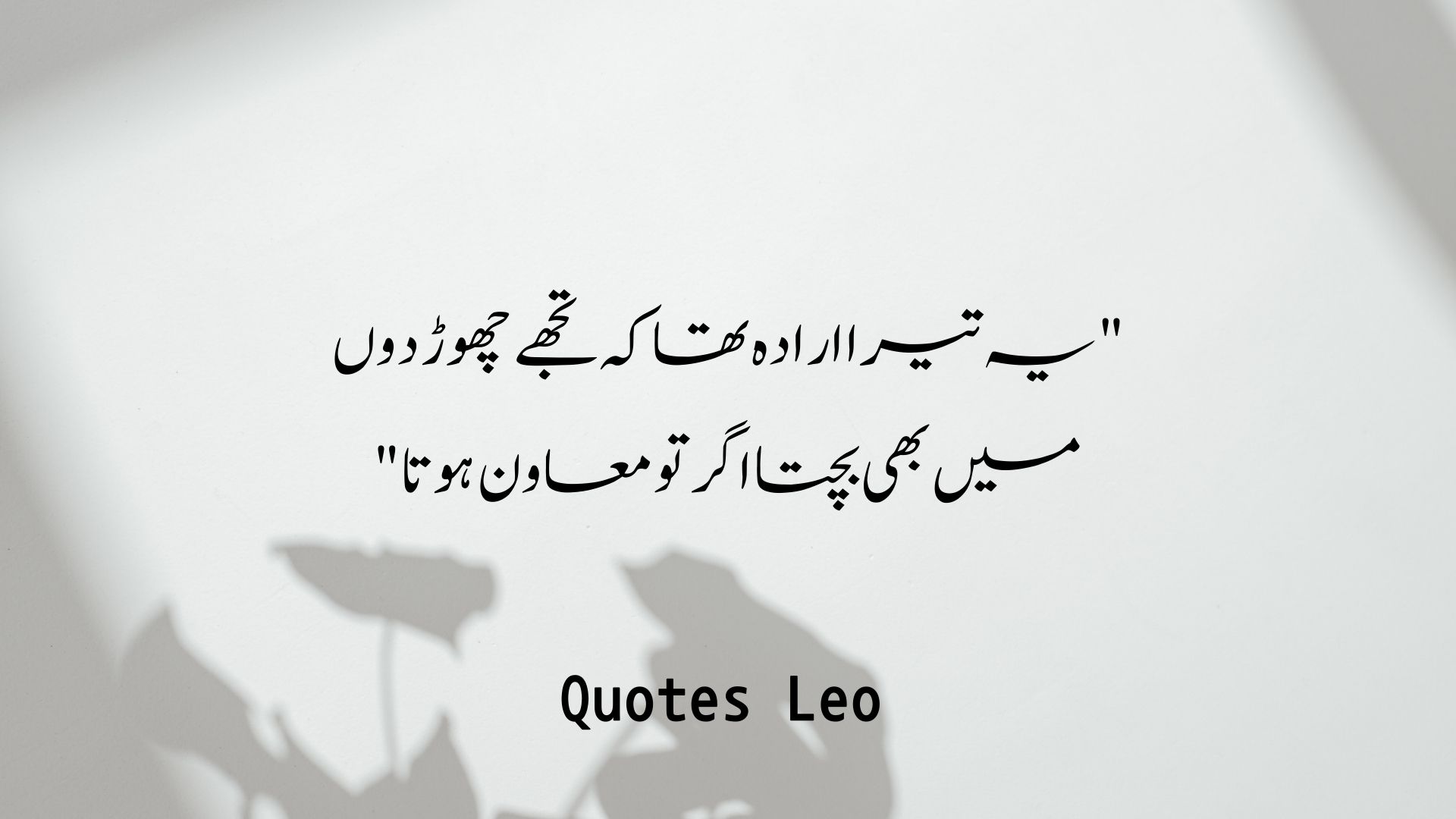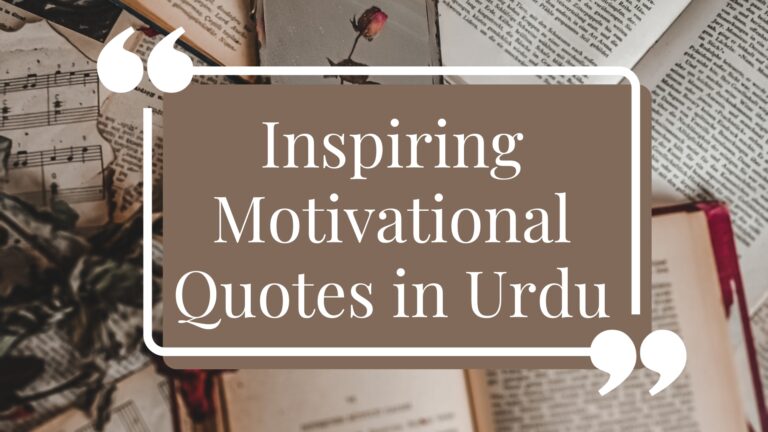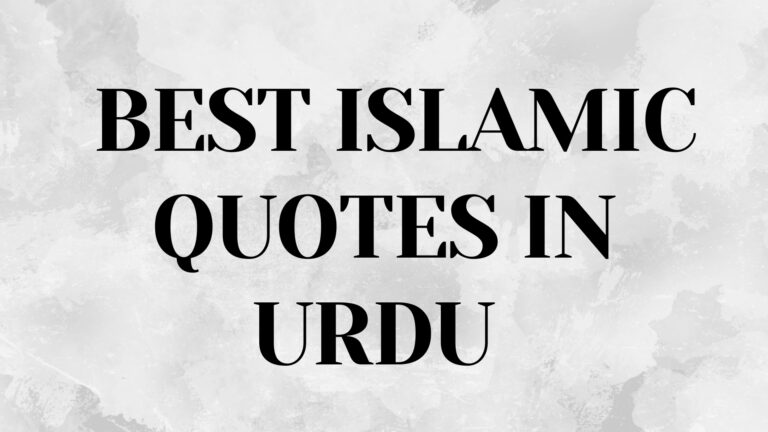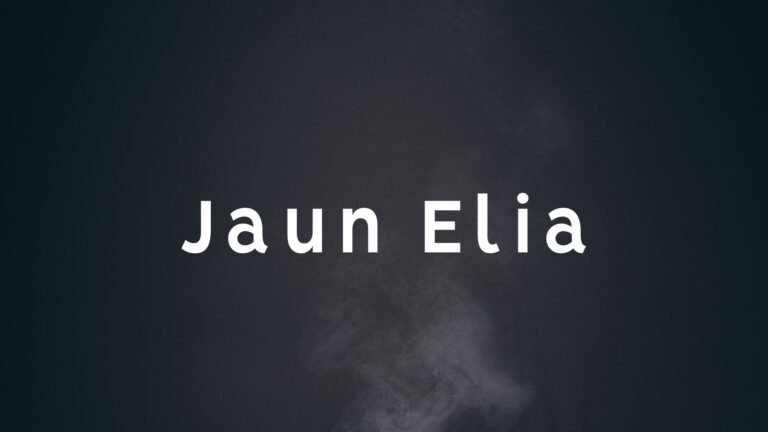In the realm of Urdu poetry, the name “Jaun Elia” shines like a star, captivating hearts and souls with his profound expressions and intricate thoughts. With words that slice through the complexities of human emotions, Jaun Elia’s poetry holds an everlasting allure. His verses are a testament to his unique perspective on love, pain, longing, and the enigmatic nature of existence.
In this exploration, we delve into some of the best poetry by Jaun Elia, discovering the depth and resonance of his words that continue to resonate with poetry enthusiasts across the world.
The Allure of Love and Longing:
At the core of Jaun Elia’s poetry lies the theme of love, often coupled with an undeniable sense of longing. His verses transcend the ordinary and journey into the realm of the soul’s desires. “محبت میری زندگی کی رازدانی ہے” (Love is the secret of my life), he writes, encapsulating the mystique that love brings to existence. Through his words, he immortalizes the beauty and pain of unrequited love.
Quote 1:
“میری زندگی کو میری محبت سے محبت ہے اور بھی چیزیں بہت سی ہیں محبت کے سوا”

Embracing the Darkness:
Jaun Elia’s poetry often delves into the shadows of life, embracing the darker aspects that most shy away from. His verses resonate with those who have experienced pain and suffering, offering solace in the acknowledgment of human frailty. “یہاں غم کو بھی نظر آتا ہے خوشی کی طرح” (Here, even sorrow appears as happiness), he muses, highlighting the irony of how pain can become an integral part of life’s tapestry.
Quote 2:
“یہاں غم کو بھی نظر آتا ہے خوشی کی طرح کیسے کہہ دوں کہ مجھے چھوڑ دیا ہے اس نے”

Reflections on Solitude:
Jaun Elia’s exploration of solitude speaks to the hearts of those who find themselves alone, either by circumstance or choice. His words delve into the depth of isolation and the introspective journey it often entails. “یہ تیرا ارادہ تھا کہ تجھے چھوڑ دوں” (It was your intention that I abandon you), he reflects, capturing the bittersweet nature of detachment from the world.
Quote 3:
“یہ تیرا ارادہ تھا کہ تجھے چھوڑ دوں میں بھی بچتا اگر تو معاون ہوتا”

Navigating Life’s Paradoxes:
Jaun Elia’s poetry often confronts the paradoxes that define human existence. His verses are a reflection of the constant struggle between hope and despair, light and darkness. “جب اچھا ہوتا ہے غم کو بھی اچھا ہوتا ہے” (When good happens, even sorrow seems good), he pens, capturing the enigmatic nature of life’s ups and downs.
Quote 4:
“جب اچھا ہوتا ہے غم کو بھی اچھا ہوتا ہے کم از کم ایک جذبہ تو کم ہوتا ہے”

Love’s Unpredictable Trajectory:
Jaun Elia’s poetry often delves into the unpredictable trajectory of love, where emotions ebb and flow like the tides. His words capture the essence of love’s uncertainty and the vulnerability it brings. “محبت کی سفر ہے مزاجوں کی بستی” (Love is a journey through the realm of moods), he observes, unraveling the intricate layers of affection.
Quote 5:
“محبت کی سفر ہے مزاجوں کی بستی لوگ محبت میں خود کو کھو دیتے ہیں”

Embracing Imperfection:
Jaun Elia’s poetry often challenges conventional notions of perfection. He celebrates the flaws and imperfections that make individuals unique. “جی چاہے کسی کو بے حسیں کر لیں ہم” (Let’s make someone heartless, if we wish), he jests, reminding us of the beauty in embracing authenticity.
Quote 6:
“جی چاہے کسی کو بے حسیں کر لیں ہم ہو جائیں ہم بھی تو کیا غم ہے”

Capturing Moments of Ecstasy:
In his poetry, Jaun Elia captures moments of ecstasy, freezing them in time through his words. He paints vivid imagery of fleeting joy and rapture. “یوں ہی تسلی ترے دل کی آئیگی” (Just like that, solace will come to your heart), he predicts, encapsulating the cyclical nature of emotions.
Quote 7:
“یوں ہی تسلی ترے دل کی آئیگی جب تک ہم جواب دیتے ہیں کسی کا نہیں”

Conclusion:
Jaun Elia’s poetry transcends time, continuing to resonate with individuals who seek a deeper understanding of the human experience. His verses are a mirror to our emotions, our struggles, and our desires. Through the lens of his poetry, we navigate the intricate labyrinth of life, finding solace, understanding, and beauty in the complexity of existence. Each verse is a universe unto itself, inviting us to ponder, reflect, and feel the profound essence of what it means to be alive.








